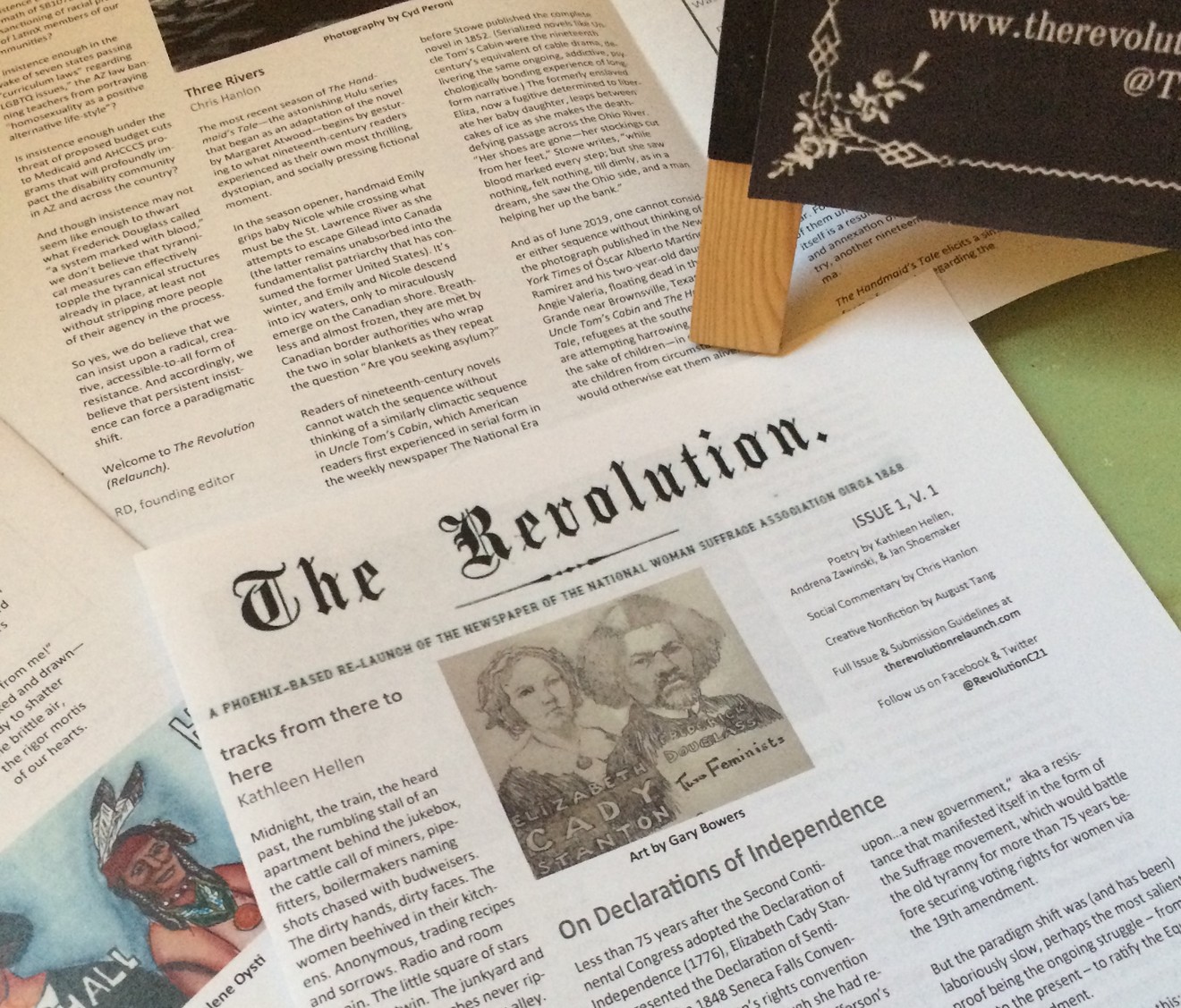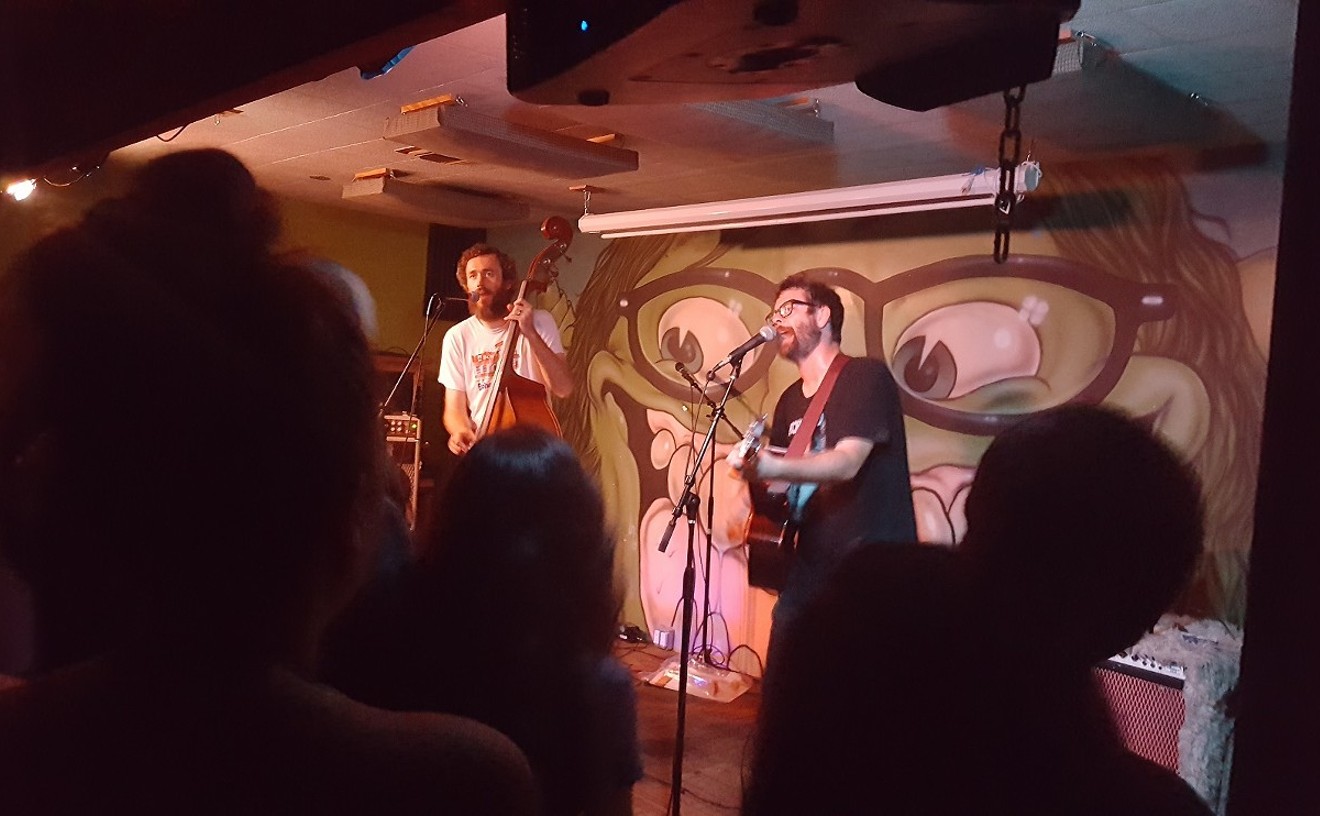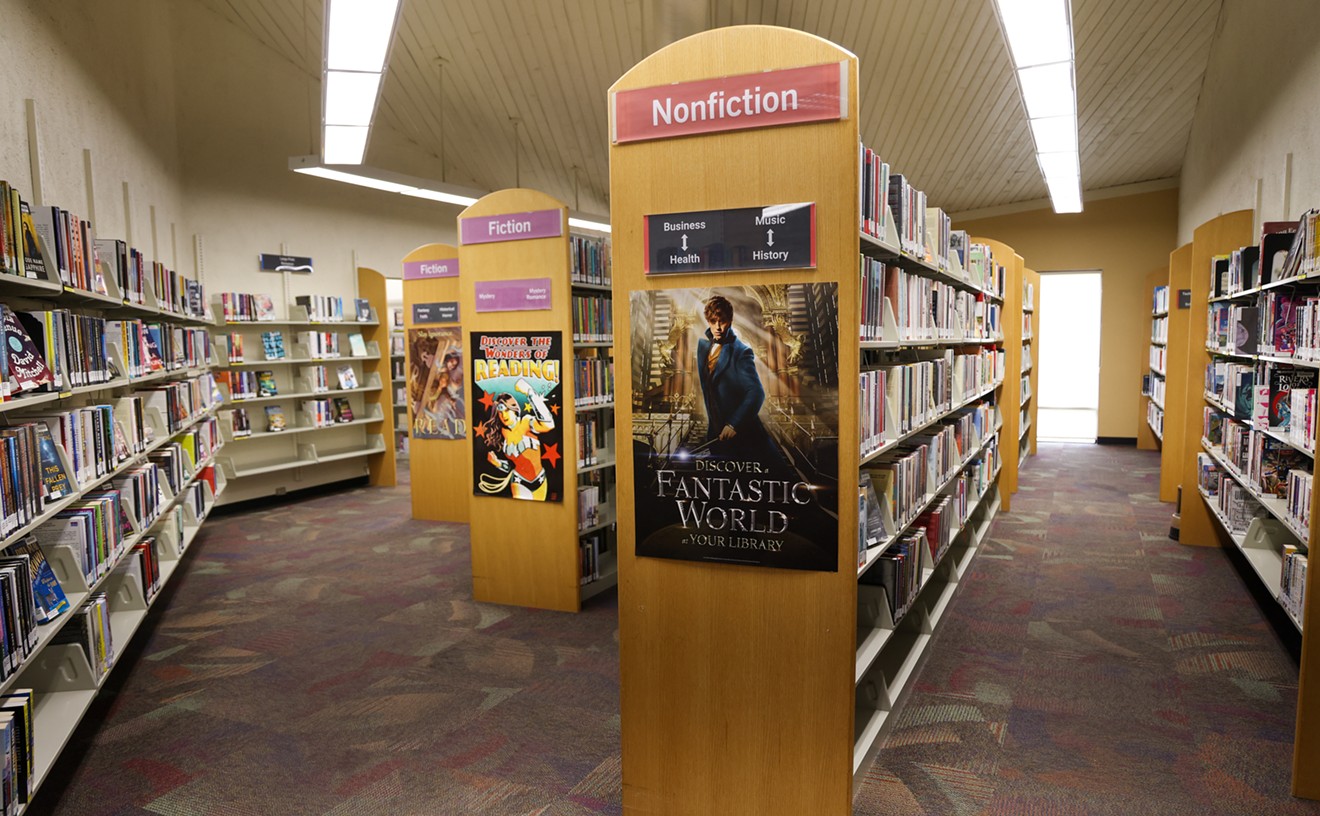It’s been 40 years since the U.S. issued the first one-dollar coin honoring suffragette Susan B. Anthony. For some, it’s a quirky bit of obscure American history. For Rosemarie Dombrowski, the first poet laureate of Phoenix, it’s a fact that conjures powerful childhood memories.
That coin explains, in part, why Dombrowski decided to create The Revolution (Relaunch). It’s a Phoenix-based literary publication that explores social-justice issues. The journal was inspired by The Revolution newspaper, which was created by women’s rights activists Anthony and Elizabeth Cady Stanton in 1868.
Dombrowski recalls her father pressing a Susan B. Anthony coin into her palm and saying these words: “She was a very important woman in American history.” Her father died when she was 14, but that moment is seared into Dombrowski’s memory, and it continues to inform her work.
The Revolution (Relaunch) pays homage to the 19th century women who wrote for the original publication. Dombrowski drew inspiration from both its format and its content. It’s a grass-roots effort. And it includes writing in multiple genres, from creative nonfiction to opinion pieces.
She stumbled onto The Revolution back in May, while researching one of several classes she teaches at Arizona State University. “I tend to go down rabbit holes,” she says. At the time, she was looking for details about Stanton.
Coincidentally, current events were weighing heavily on Dombrowski. Several states were passing laws to restrict access to abortion, and migrant children were dying in U.S. custody along the border.
For Dombrowski, it was a call to action.
“I had this hairbrained idea to relaunch The Revolution, so I put the idea out on social media,” she says. “I couldn’t believe a relaunch hadn’t been done already.”
Dombrowski soon gathered a cadre of volunteer editors, culled in part from people who had responded to her initial social media post about the project. And she called on local historians and literary critics with expertise in the 19th century.
They published the first issue online on July 4, 2019. Separate print issues gives the team the personal touch of passing the paper out to people, and makes for the sharing of work at literary and community events. The editors leave print copies around town, typically at places like locally owned coffee shops, bookstores, and community group offices. Sometimes they set them in kiosks around downtown Phoenix or the ASU campus.
They publish quarterly in print, and are working now on the next issue. They’re hoping to have 1,000 copies of The Revolution (Relaunch) in circulation by the end of the year. And they’re working to secure funding to shift to monthly print publication.
Dombrowski has other dreams, as well.
“We’d like to host town halls in 2020,” she says. Possible topics include reproductive rights and immigrant rights. “We want to open up dialogue between those who have privilege and those without it.”
She’s also hoping their work will inspire grassroots efforts in other places. “I want to see people in other cities start similar publications,” Dombrowski says.
There’s an open call for submissions, and anyone can submit their work for consideration on their website. Every issue includes works by community writers, members of the editorial team, and excerpts from issues of The Revolution.
They typically get a lot of flash memoir and political poetry. “We want to see people talking about identity a little bit more, and read more creative nonfiction that tends toward personal experience,” says Dombrowski.
The perfect mix incorporates several elements, including intersectionality and inclusivity. “Our work is cross-generational and multigender,” she says. “We’re looking for writing that’s local and timely.” Everything they run is 750 words or less.
Dombrowski sees The Revolution (Relaunch) as part of a much larger social justice ecosystem in Phoenix and beyond.
“We really want to connect with the activist and social justice community in Phoenix,” she says. “That’s the unsung creative community — the ones doing creative activism.”
[
{
"name": "Air - MediumRectangle - Inline Content - Mobile Display Size",
"component": "18478561",
"insertPoint": "2",
"requiredCountToDisplay": "2"
},{
"name": "Editor Picks",
"component": "16759093",
"insertPoint": "4",
"requiredCountToDisplay": "1"
},{
"name": "Inline Links",
"component": "17980324",
"insertPoint": "8th",
"startingPoint": 8,
"requiredCountToDisplay": "7",
"maxInsertions": 25
},{
"name": "Air - MediumRectangle - Combo - Inline Content",
"component": "16759092",
"insertPoint": "8th",
"startingPoint": 8,
"requiredCountToDisplay": "7",
"maxInsertions": 25
},{
"name": "Inline Links",
"component": "17980324",
"insertPoint": "8th",
"startingPoint": 12,
"requiredCountToDisplay": "11",
"maxInsertions": 24
},{
"name": "Air - Leaderboard Tower - Combo - Inline Content",
"component": "16759094",
"insertPoint": "8th",
"startingPoint": 12,
"requiredCountToDisplay": "11",
"maxInsertions": 24
}
]












